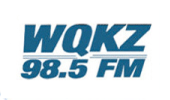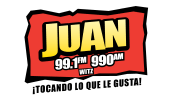Patoka Sportsman 6-18-22
Patoka Sportsman 6-18 & 6-19-22
Do you like to report wildlife you see while enjoying nature? Did you get something unusual on a trail camera and want to share it to help wildlife in Indiana? DFW has launched a new Report a Mammal form that may be for you. It includes a variety of species; some are elusive or are rare visitors to the state, and some we need more information about. Additions include armadillos, badgers, gray foxes, flying squirrels, star-nosed moles, ground squirrels, and weasels, among others.
Safe use and handling of firearms is an essential part of being a responsible hunter. Indiana Hunter Education Courses provide instruction and information about firearm safety, hunter ethics and responsibility, animal identification, and conservation management. Anyone born after December 31, 1986 needs to be certified in Hunter Education before they can purchase a hunting license.
The next local Hunter Ed. Course is coming up on July 15 from 6-8:30 PM and Saturday, July 16 from 8 AM – 3:30 PM at the Chrisney 4-H Center lower building on Hwy. 70. You must attend both days and are encouraged to bring your favorite drink, snack and a highlighter. Lunch will be provided on Saturday.
Peak molting times for Canada geese in Indiana are the last two weeks of June through the first two weeks of July. During molting, adult Canada geese are grounded while they grow new flight feathers. During this same period of time goslings have not had the chance to grow their first set of flight feathers, which is why you may observe an increase in Canada geese and their young walking across roads this summer. Canada geese that are causing problematic interactions with humans during this time cannot move far due to the absence of flight feathers. Because of this, normal harassment techniques are neither appropriate nor effective. Instead of harassing molting geese, consider installing a fencing barrier prior to goose nesting. For more information about living with Canada geese, visit the DNR website.
The DNR is currently seeking volunteers to help youth fish at the Indiana State Fair Fishin’ Pond! You can help families register on-site, help kids fish with cane poles, or tie fishing knots and untangle lines. The Fishin’ Pond will be open on Opening Day (July 29), Thursdays, Saturdays, and Sundays from 10 a.m. - 1 p.m. and 4 p.m. - 7 p.m. Volunteer shifts last four hours and volunteers receive free parking, a free ticket, and a free T-shirt. There’s an opportunity for everyone to help us introduce fishing to more people. If you are interested in volunteering, please email DNRstatefairfishingpond@dnr.in.gov and provide your name, email address, and phone number and we will follow up with you to get you signed up.
The 2022 Indiana State Fair begins July 29 and runs through August 21 (closed on Mondays and Tuesdays). This year’s indoor theme for the DNR building highlights automobiles, machines, and more – the tools we use to conserve Indiana’s fish, wildlife, and their habitats. Look for some interesting equipment on display from the Division of Fish & Wildlife! Beginning Aug.10, fish from Cikana Fish Hatchery will be on display in the indoor tanks and outdoor ponds.
June marks the halfway point for the Indiana Nongame Wildlife Fund’s 40th anniversary! Each month in 2022, we are featuring stories made possible by the Nongame Wildlife Fund and its donors, partners, and volunteers. June features the amazing technology biologists use to conserve and protect Indiana’s wildlife. To see videos about this topic, visit the Nongame Wildlife Fund 40 Stories story map!
Turkeys throughout Indiana are leading their poults (turkey chicks) through the woods in search of food. Beginning in July, Indiana DNR needs your help to count turkey broods (hens with poults) and hens without poults. These reports help biologists to determine the annual Wild Turkey Production Index, which is used to estimate populations in the state and guide future wildlife management decisions. In 2021, more than 5,100 observations were submitted and 68 of Indiana’s 92 counties had more than 25 observations per county!
Spring and summer are an exciting time of year for Indiana residents who enjoy spending time outside planting. With so many options for plants, it can be difficult to decide what goes in the ground and what stays at the store or nursery. This year, consider filling your pots and beds with native Indiana flowers, shrubs, trees, and grasses. Habitat loss is the biggest threat to wildlife diversity, and planting native plants is one of the best ways you can help. In addition to providing food to wildlife and attracting pollinators such as bees and butterflies, many species of birds and small mammals use native plants for nesting material. Planting native can also help keep Indiana’s water clean as many native plants have deep roots, drawing water down and keeping pollution away from our lakes and streams.
Watch this webinar about creating native habitat in your backyard and consider reaching out to your district biologist for recommendations. View a list of seed suppliers here.
On May 24 DNR biologists banded four young barn owls, a state-endangered species. The leg bands feature a unique number and allow biologists to identify the birds if they are recaptured at a later date. This information allows biologists to understand their range, longevity, and habits. These newly banded barn owls have been observed by wildlife enthusiasts through the Barn Owl Nest Webcam. The DNR-built nesting box featured in the webcam has been used by barn owls since 2009. You can help barn owls by building safe and effecting nesting boxes or by donating to the Indiana Nongame Wildlife Fund.
Patoka Lake will host a beginner archery lesson with the interpretive naturalist, who is a certified archery instructor, on Sunday, July 3 from 9 to 11:30 a.m. This event is an introduction to the sport and is open to adults and children ages 8 and older. All archery equipment will be provided. The event is limited to 15 participants, and advance registration is required. Cost is $5 per person and is non-refundable. Call the Patoka Lake Nature Center at 812-685-2447 to reserve a spot. The entrance fee of $7 per vehicle for Indiana residents and $9 for out-of-state vehicles is required for the Newton Stewart State Recreation Area, located north of Wickliffe on State Road 164. For more information regarding this program or other interpretive events, please call the Nature Center at 812-685-2447.




